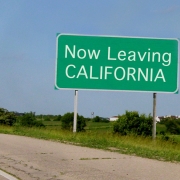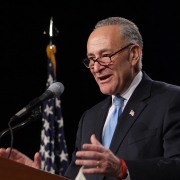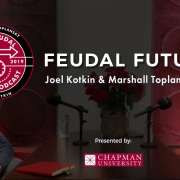California’s Budget Deficit Spells Trouble
Just a year ago California Governor Gavin Newsom could, and did, brag about the state’s estimated $100 billion surplus. Flush with cash, the preening presidential hopeful was able to hand out thousands of dollars of goodies to households while financing an elaborate multi-billion dollar climate change agenda.
Now the state faces a budget deficit of at least $25 billion, which could grow to $35 to $50 billion if there’s a deep recession. Part of the problem lies with the end of federal Covid spending, but more to blame is the utter dependence of the state on tech billionaire taxpayers and high property prices. These are the top 1% of earners, who pay roughly half of the state’s income taxes.
Thanks to a booming tech industry, these oligarchs made a killing that also allowed them to finance California’s profligate state budget. But as revenue from this industry has dried up this year, the crisis is more immediate. Property values are dropping faster in California’s three largest metros than the rest of the country, and even San Francisco’s once thriving business district faces persistent vacancies. Meanwhile new tech IPOs, a critical source of revenues, are suffering their biggest decline in two decades while Hollywood is enduring layoffs at Disney and other companies. In 2022, stock in media companies lost $500 billion in value, while those at tech firms hemorrhaged an astounding $4 trillion.
Worse for Newsom, this turnaround does not reflect a national phenomenon. Gregg Abbott’s Texas and Ron DeSantis’s Florida have achieved large budget surpluses, with several red states even initiating tax cuts. If the situation does not change, the contrast could prove devastating to Newsom’s presidential ambitions as well as to President Joe Biden, whose policy agenda largely follows progressive California lines.
The key to California’s travails lies not in other state’s stars, but in its own failing. California’s single-minded climate jihad — in addition to onerous labour regulations — has driven investment and people out of the state. Indeed, investment in rocket, battery, electric vehicle and semiconductor plants that may once have fitted naturally in the Golden State is now going to the likes of Ohio, Florida, and Texas.
Read the rest of this piece at UnHerd.
Joel Kotkin is the author of The Coming of Neo-Feudalism: A Warning to the Global Middle Class. He is the Roger Hobbs Presidential Fellow in Urban Futures at Chapman University and Executive Director for Urban Reform Institute. Learn more at joelkotkin.com and follow him on Twitter @joelkotkin.
Homepage Photo: Jill Siegrist via Flickr under CC 2.0 License






 Beatrice Murch, under CC 2.0 License
Beatrice Murch, under CC 2.0 License
